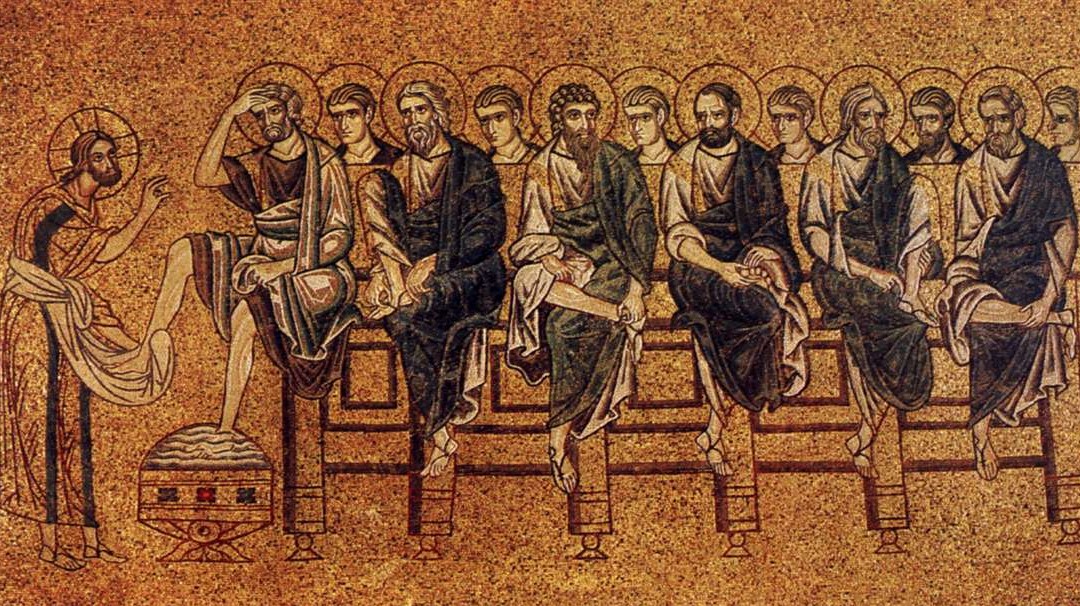
John 13:1-17
Narrative Lectionary 432
1 Now before the festival of the Passover,A JesusB knewC that his hour had come to depart from this worldD and go to the Father. Having lovedE his ownF who were in the world, he loved them to the end.G
2 The devilH had already putI it into the heartJ of JudasK son of SimonL IscariotM to betrayN him.
And during supper 3 Jesus, knowing that the Father had givenO all things into his hands,P and that he had come from GodQ and was goingR to God, 4 got up from the table, took off his outer robe,S and tied a towelT aroundU himself.
5 Then he poured water into a basinV and began to washW the disciples’X feet and to wipeY them with the towel that was tied around him.
6 He came to Simon Peter,Z who said to him, “Lord,AA are you going to wash my feet?”
7 Jesus answered, “You do not know now what I am doing, but later you will understand.”BB
8 Peter said to him, “You will never wash my feet.”CC
Jesus answered, “Unless I wash you, you have no shareDD with me.”
9 Simon Peter said to him, “Lord, not my feet only but also my hands and my head!”
10 Jesus said to him, “One who has bathedEE does not need to wash, except for the feet, but is entirelyFF clean.GG And you are clean, though not all of you.” 11 For he knew who was to betray him; for this reason he said, “Not all of you are clean.”
12 After he had washed their feet, had put on his robe, and had returned to the table,HH he said to them, “Do you know what I have done to you? 13 You call me TeacherII and Lord—and you are right,JJ for that is what I am. 14 So if I, your Lord and Teacher, have washed your feet, you also oughtKK to wash one another’s feet.
15 For I have set you an example,LL that you also should do as I have done to you. 16 Very truly,MM I tell you, servantsNN are not greater than their master,OO nor are messengersPP greater than the one who sentQQ them. 17 If you know these things, you are blessedRR if you do them.
Image Credit: “Christ Washing the Feet of his Disciples” at Saint Mark’s Basilica in Venice, circa 1210.
